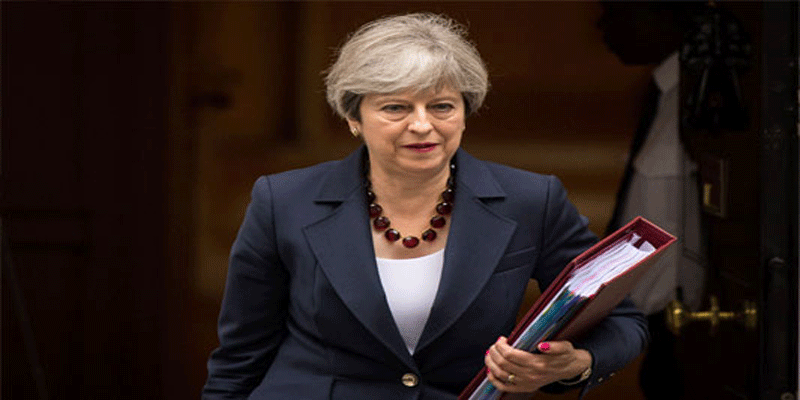Theresa May has said she’s not planning to leave 10 Downing Street any time soon. Indeed, she has pledged that she will lead her party beyond Brexit. In her own words: “I’m not a quitter”. Maybe not, but is she wise to try for another term in office? And will her party accommodate her wishes if she does?
Mrs May announced her intentions to fight on in interviews with television journalists on her visit to Japan. She put it like this: “There’s a real job to be done in the United Kingdom. It’s about getting the Brexit deal right. It’s about building that deep and special partnership with the European Union but it’s also about building global; Britain, trading around the world.”
When she was asked specifically by ITV if she would step down before the next election she said: “I’m not a quitter” and when she was asked by Sky News if she wanted to lead the Tories into another election she said: “Yes, I’m in this for the long term.”
It did not take long for her colleagues to react. One of the first out of the trap was the former party chairman, Grant Shapps, who told the Today programme he had serious doubts about her decision and pointedly reminded our listeners of how she had led the party to a “disastrous” election result. Lord Heseltine, the man who had challenged Margaret Thatcher for the leadership, took the same view and said he thought she had no future in the long term as party leader. The former Chancellor George Osborne has described her as “a dead woman walking”.
Within hours of her announcement the paper he edits, the London Evening Standard, likened her government to “the living dead in a horror film… staggering on oblivious” Serial backbench rebels such as Anna Soubry and Nicky Morgan had already made it clear they’d like to see the back of her. There have been voices of support, including that of Lord Howard, himself a former party leader and the influential backbencher Graham Brady, who chairs the 1922 committee of backbench MPs. But the general reaction to her announcement from Tory loyalists seems to have been surprise tinged with disbelief.
Mrs May’s problem is that she has been a lame duck leader ever since the party lost its overall majority in an election which she need not have called. Even her closest allies did not pretend that the campaign had been anything other than a failure: a failure to connect with the public and a failure to recognise the danger Jeremy Corbyn represented.So why did she do it?
Perhaps the most plausible explanation is that there is no obvious frontrunner who could take her on if a contest were to be held any time soon. Boris Johnson, once the heir apparent but forced to pull out of the leadership race, has been losing support rather than gaining it within the party. He’s also been the subject of some pretty vicious attacks for his performance as foreign secretary over the past days. Other senior figures such as David Davis and Philip Hammond are said to favour Mrs May stepping down after she has taken the flak for whatever the Brexit negotiations finally deliver. The ground would then be clear for younger hopefuls such as Tom Tugendhat to throw their hats in the ring.
Mrs May’s calculation seems to be that most Conservative MPs are so scared of the threat from a rejuvenated Labour Party led by Jeremy Corbyn that they would prefer her to stay rather than risk a destabilising leadership election which might even precipitate an early general election.
In short Mrs May not be the leader of their dreams but the ultimate nightmare for them is the chance of losing their own seats in another disastrous election and the prospect of a Labour government led by the most left-wing leader in modern history.
One of the laws of politics at the highest level is that it can be almost as difficult for a prime minister to find the right time to call it a day as it is to get the job in the first place. History is replete with examples of leaders who have got the timing wrong and you don’t need to be a historian to remember the most famous in recent times: “I fight on, I fight to win.” By what may or may not turn out to be cruel coincidence, those lines were spoken by our first female prime minister: Margaret Thatcher.
Mrs May must hope the coincidence ends there. Mrs Thatcher was forced to pull out of the leadership race when her own Cabinet colleagues persuaded her it would be in the party’s best interests.
So what’s your view? Was Mrs May wise to announce that she has no intention of quitting or should she have kept open the option of leaving before the next election? And if she does run again for leader would that make it more or less likely that you would vote Conservative?
Let us know.
Image: PA










